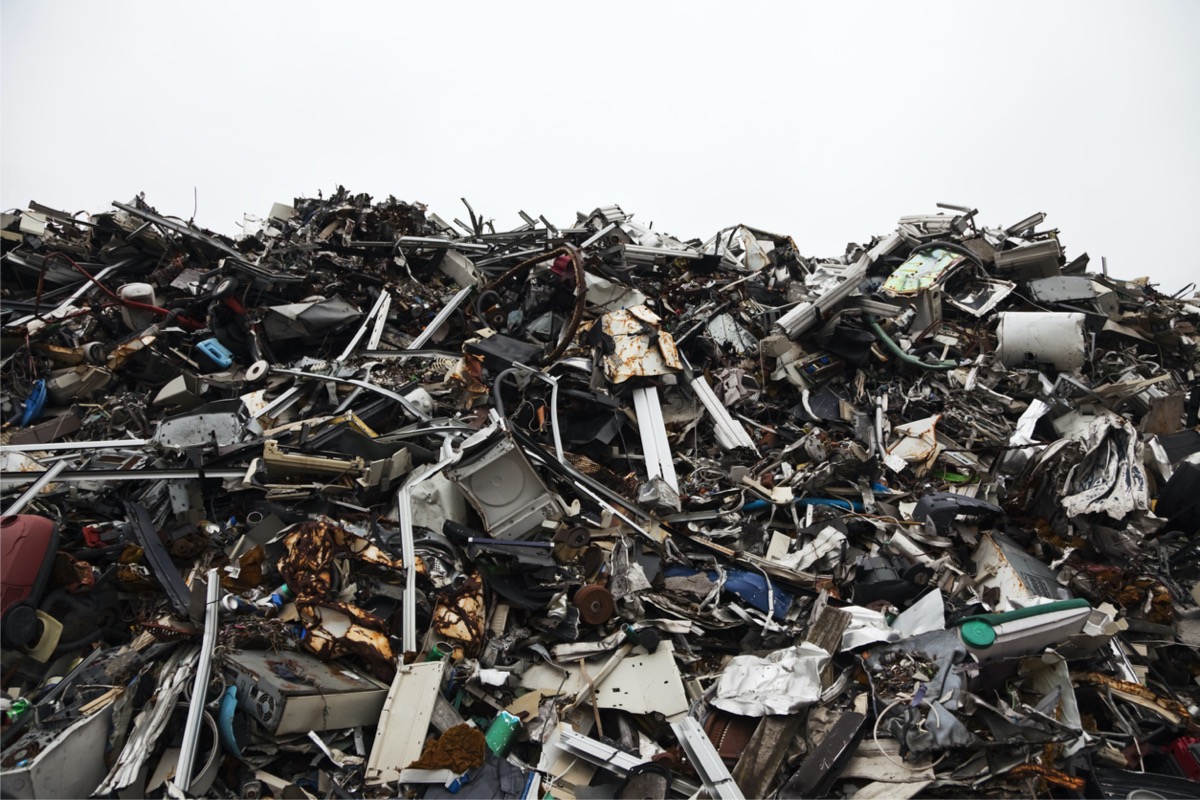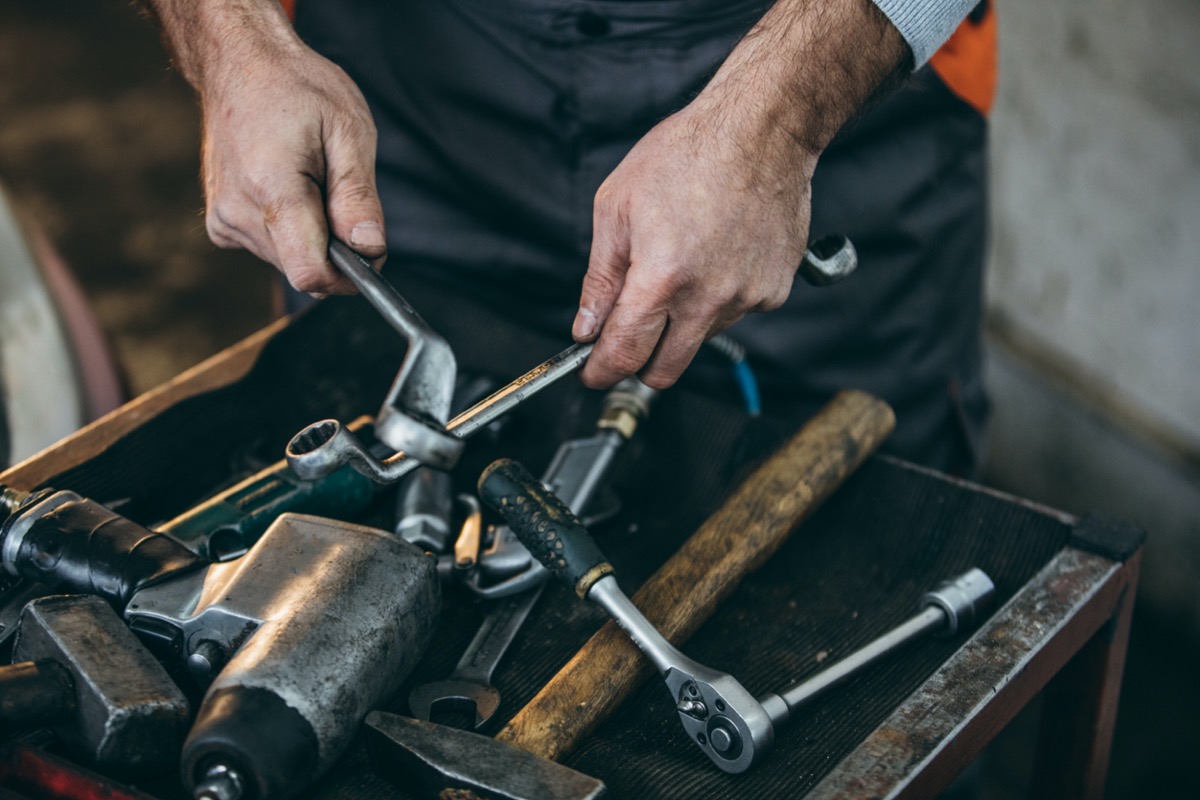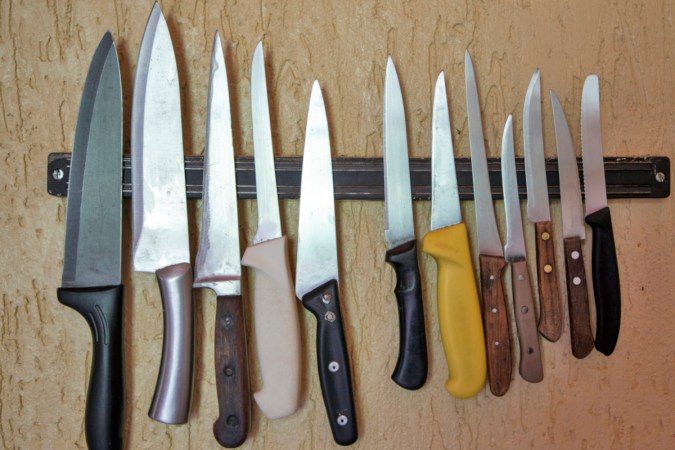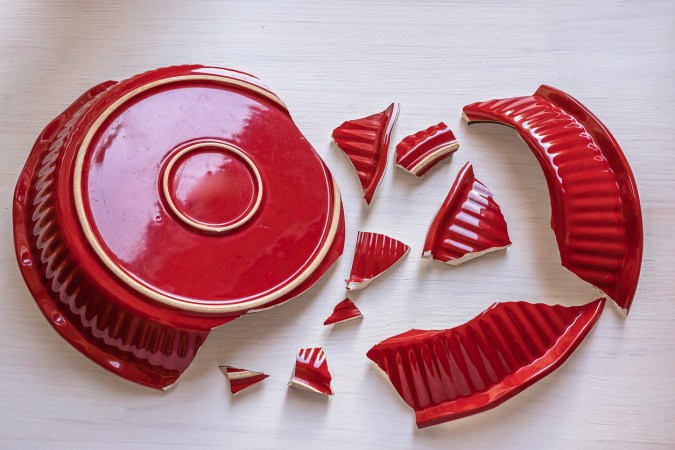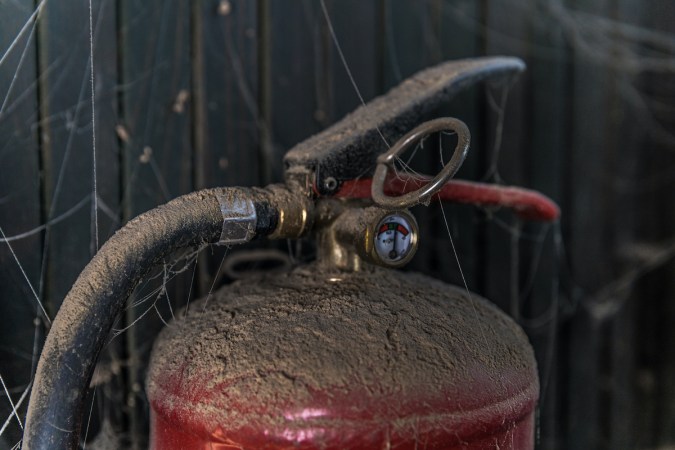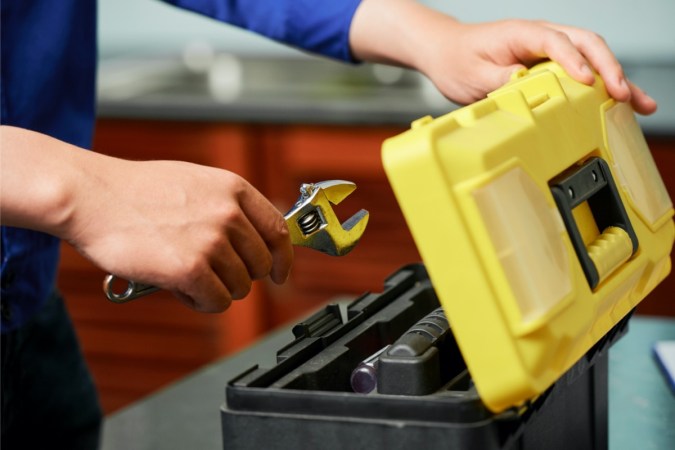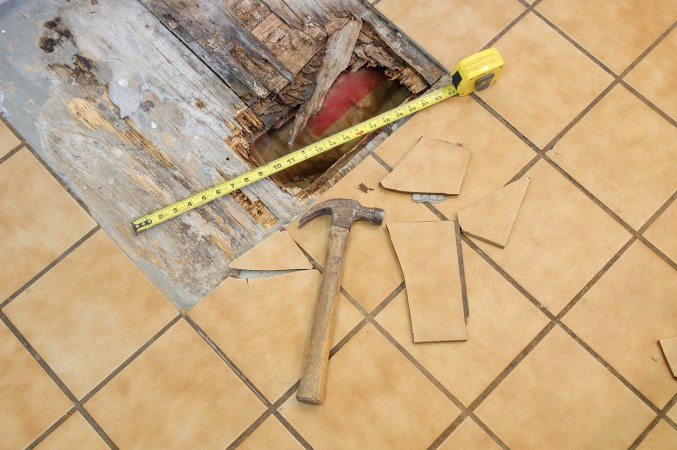We may earn revenue from the products available on this page and participate in affiliate programs. Learn More ›
DIYers and pros love their tools, but they’re also keenly aware of this harsh reality: They don’t last forever. Whether a tool breaks from age or poor quality, becomes outdated and needs to be upgraded, or remains unused since that one-off project 3 years ago, keeping those old and broken tools around can clutter a workshop.
Old or broken tools can’t just be dropped into the trash or recycle bin, however, and knowing how to dispose of them safely is important. The following are some tips on what to do with those outdated or obsolete implements in your workshop.
Try a local refuse and recycling center.
Most garbage pick-up companies won’t accept power tools left in curbside recycling bins, but many refuse and recycling agencies that take household appliances will also accept power tools for a fee. This method can get expensive quickly, but in some areas, it might be the only viable option for larger power tools that are past their prime.
RELATED: The Best Power Tool Sets
Give them to a friend.
Homeowners who have functional old tools laying around that aren’t seeing much use anymore might try giving them to family or friends. There are plenty of DIYers whose budgets prevent them from buying new tools, so the gift would be appreciated. If there’s a young person in the neighborhood who always seems to be helping out, a box of old tools might just help them start up a part-time handyperson gig.
Donate them.
If giving older tools away to people you know isn’t an option, there are quite a few nonprofit organizations that might accept them. Organizations like Habitat for Humanity, Salvation Army, and some churches are happy to take donated tools, sell them, and then use the profits to fund their housing projects and food banks. These organizations can also provide receipts, as these donations are deductible on your taxes.

Help stock a tool library.
Just like a regular library, tool libraries allow members to check out tools, use them, and return them. Donating tools to one of these organizations can allow someone who can’t afford them a chance to use some of the best tools. Run a quick internet search for tool libraries in your local area.
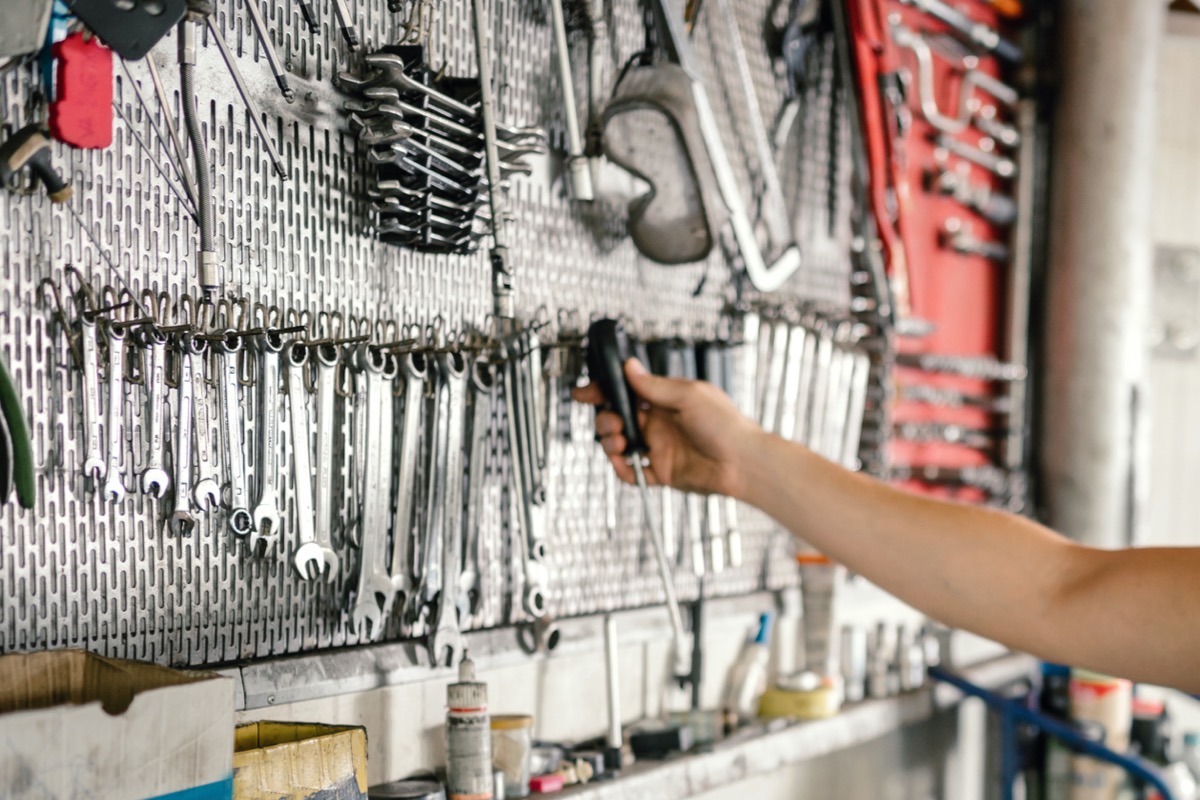
Contact the manufacturer.
Many tool manufacturers will accept old or broken power tools that customers drop off at authorized dealers. DeWalt, Bosch, Festool, Black and Decker, and many other brands will pick these tools up, disassemble them, and recycle them for free. This can be a better option than paying to have them recycled at a local refuse center.
Consider a yard sale or classified site.
There’s nothing wrong with turning those old tools into a bit of cash (which many DIYers will probably take to the hardware store for new tools or supplies). Holding a yard sale in the spring and summer months might move some of those still-functioning tools off the garage shelves.
Or, listing a few items on a site like Craigslist or Facebook Marketplace can serve the same purpose. The buyer gets a good deal on a tool they need, and the seller gets some extra spending cash for their next trip to the tool dealer.
Tip: Do a little research before selling any hand tools online. Some older tools might be antiques and worth mind-boggling amounts of money to the right buyer.
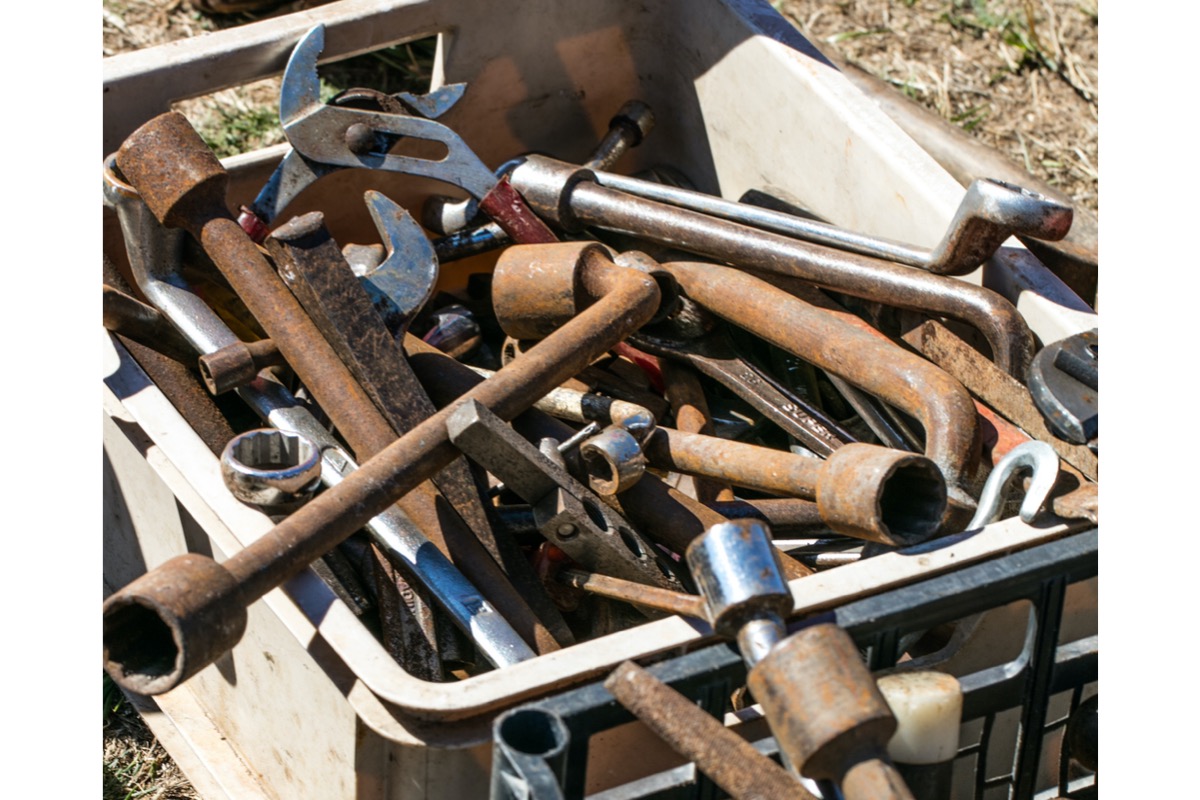
Don’t forget upcycling.
Giving an old tool a new lease on life might mean changing its purpose altogether. Old tools can become wonderful wall art or office décor for anyone who enjoys an industrial or rustic look. Some craftspeople enjoy turning old saw blades into knives. Hammer heads might make handy door stops or door knockers. With a little creativity, old tools can live on with a new purpose.
RELATED: Trash to Treasure: 14 Creative Ways to Make Good Use of Old Stuff
Consider scrapping broken tools.
When all else fails, there’s always the scrap yard. For broken tools made from metal, taking them to the scrap yard could net a small return. Scrap yards pay by weight for metal, regardless of whether it’s from a tool, a pipe, or a wire. A bucket full of broken screwdrivers, snapped drill bits, hammer heads, and bent saw blades can weigh a few pounds and become a small pay day.
